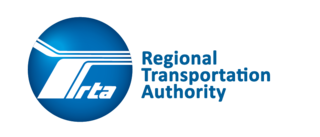Related Research Articles

Pseudoephedrine (PSE) is a sympathomimetic drug of the phenethylamine and amphetamine chemical classes. It may be used as a nasal/sinus decongestant, as a stimulant, or as a wakefulness-promoting agent in higher doses.

Ephedrine is a medication and stimulant. It is often used to prevent low blood pressure during anesthesia. It has also been used for asthma, narcolepsy, and obesity but is not the preferred treatment. It is of unclear benefit in nasal congestion. It can be taken by mouth or by injection into a muscle, vein, or just under the skin. Onset with intravenous use is fast, while injection into a muscle can take 20 minutes, and by mouth can take an hour for effect. When given by injection it lasts about an hour and when taken by mouth it can last up to four hours.

Over-the-counter (OTC) drugs are medicines sold directly to a consumer without a requirement for a prescription from a healthcare professional, as opposed to prescription drugs, which may be supplied only to consumers possessing a valid prescription. In many countries, OTC drugs are selected by a regulatory agency to ensure that they contain ingredients that are safe and effective when used without a physician's care. OTC drugs are usually regulated according to their active pharmaceutical ingredient (API) rather than final products. By regulating APIs instead of specific drug formulations, governments allow manufacturers the freedom to formulate ingredients, or combinations of ingredients, into proprietary mixtures.
Clandestine chemistry is chemistry carried out in secret, and particularly in illegal drug laboratories. Larger labs are usually run by gangs or organized crime intending to produce for distribution on the black market. Smaller labs can be run by individual chemists working clandestinely in order to synthesize smaller amounts of controlled substances or simply out of a hobbyist interest in chemistry, often because of the difficulty in ascertaining the purity of other, illegally synthesized drugs obtained on the black market. The term clandestine lab is generally used in any situation involving the production of illicit compounds, regardless of whether the facilities being used qualify as a true laboratory.

The Regional Transportation Authority (RTA) is the financial and oversight body for the three transit agencies in northeastern Illinois; the Chicago Transit Authority (CTA), Metra, and Pace, which are called Service Boards in the RTA Act. RTA serves Cook, DuPage, Kane, Lake, McHenry and Will counties.

The Montana Meth Project (MMP) is a Montana-based non-profit organization founded by businessman Thomas Siebel which seeks to reduce methamphetamine use, particularly among teenagers. The main venture of the MMP is a saturation-level advertising campaign of television, radio, print, and Internet ads that graphically depict the negative consequences of methamphetamine use. Common elements are the deterioration of each teenage subject's health and living conditions, amphetamine psychosis, moral compromise, and regret. As of 2010, the Meth Project has expanded its media campaign into seven additional states. As of March 13, 2013 the Meth Project, the umbrella organization of the Montana Meth Project, joined the Partnership for Drug-Free Kids in their efforts to reduce substance abuse among teens.

Reagent testing is one of the processes used to identify substances contained within a pill, usually illicit substances. With the increased prevalence of drugs being available in their pure forms, the terms "drug checking" or "pill testing" may also be used, although these terms usually refer to testing with a wider variety of techniques covered by drug checking.

The Combat Methamphetamine Epidemic Act of 2005 (CMEA) is federal legislation enacted in the United States on March 9, 2006, to regulate, among other things, retail over-the-counter sales of following products because of their use in the manufacture of illegal drugs:
The illegal drug trade in China is influenced by factors such as history, location, size, population, and current economic conditions. China has one-fifth of the world's population and a large and expanding economy. China's large land mass, close proximity to the Golden Triangle, Golden Crescent, and numerous coastal cities with large and modern port facilities make it an attractive transit center for drug traffickers. Opium has played an important role in the country's history since before the First and Second Opium Wars in the mid-19th century.

Elections in Illinois provide for the election of over 40,000 elected seats across over 6,000 units of government.
The U.S. state of Oregon has various policies restricting the production, sale, and use of different substances. In 2006, Oregon's per capita drug use exceeded the national average. The most used substances were marijuana, methamphetamine and illicit painkillers and stimulants.

A rolling meth lab is a transportable laboratory that is used to illegally produce methamphetamine. Rolling meth labs are often moved to a secluded location where the strong, toxic fumes of methamphetamine manufacture cannot be detected and where the toxic manufacturing byproducts can be discarded. They are sometimes designed to manufacture the drug while the lab is traveling.
The production, distribution, and sale of methamphetamine is restricted or illegal in many jurisdictions.

The Comprehensive Methamphetamine Control Act of 1996 is a bill enacted into law by the 104th Congress of the United States. It mandated registration of persons trading in list I chemicals from the DEA list of chemicals. A fee for such registration was initially $595 but later reduced to $116. It is regarded as one of the major drug laws in the United States.

Methamphetamine in the United States is regulated under Schedule II of the Controlled Substances Act. It is approved for pharmacological use in the treatment of attention deficit hyperactivity disorder and treatment-resistant obesity, but it is primarily used as a recreational drug. In 2012, 16,000 prescriptions for methamphetamine were filled, approximately 1.2 million Americans reported using it in the past year, and 440,000 reported using the drug in the past month.

Florida v. Harris, 568 U.S. 237 (2013), was a case in which the United States Supreme Court addressed the reliability of a dog sniff by a detection dog trained to identify narcotics, under the specific context of whether law enforcement's assertions that the dog is trained or certified is sufficient to establish probable cause for a search of a vehicle under the Fourth Amendment to the United States Constitution. Harris was the first Supreme Court case to challenge the dog's reliability, backed by data that asserts that on average, up to 80% of a dog's alerts are wrong. Twenty-four U.S. States, the federal government, and two U.S. territories filed briefs in support of Florida as amici curiae.
Amphetamine and methamphetamine are central nervous system stimulants used to treat a variety of conditions. When used recreationally, they are colloquially known as "speed." Amphetamine was first synthesized in 1887 in Germany by Romanian chemist Lazăr Edeleanu, who named it phenylisopropylamine. Around the same time, Japanese organic chemist Nagai Nagayoshi isolated ephedrine from the Chinese ephedra plant and later developed a method for ephedrine synthesis. Methamphetamine was synthesized from ephedrine in 1893 by Nagayoshi. Neither drug had a pharmacological use until 1934, when Smith, Kline & French began selling amphetamine as an inhaler under the trade name Benzedrine for congestion.
The National Precursor Log Exchange (NPLEx) is a real-time electronic logging system which tracks sales of the methamphetamine precursors ephedrine and pseudoephedrine in the United States. The program is operated by the National Association of Drug Diversion Investigators (NADDI), funded by manufacturers of pseudoephedrine medicine, and technology provided through contract by Apriss Inc. As of January 2014, 29 states have passed NPLEx-related legislation, and it is implemented in most other states on a voluntary basis by national retail chains.

The Illinois Clean Jobs Bill is a renewable-energy bill that was introduced in the 99th Illinois General Assembly. It was sponsored by Democratic state senator Don Harmon of Oak Park and Democratic state representative Elaine Nekritz of Northbrook. The bill died in committee.

The 94th Illinois General Assembly, consisting of the Illinois Senate and the Illinois House of Representatives, existed from January 12, 2005 to January 9, 2007 during the first two years of Rod Blagojevich's second term as governor. The General Assembly met at the Illinois State Capitol.
References
- ↑ "720 ILCS 648/Methamphetamine Precursor Control Act". www.ilga.gov. Retrieved 2022-01-16.
- ↑ Decker, John F.; Kopacz, Christopher (2012-07-05). Illinois Criminal Law Student Edition. LexisNexis. ISBN 978-0-327-17691-6.
- ↑ "Illinois General Assembly - Bill Status for SB0273" . Retrieved 2022-06-07.
- ↑ "Meth continues to plague rural Illinois". Medill Reports Chicago. 2016-03-01. Retrieved 2022-01-16.